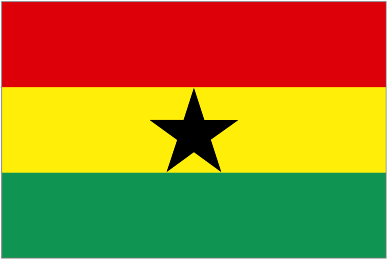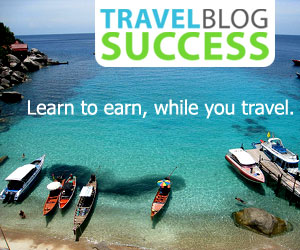- Population: 21.8 million (UN, 2005)
- Capital: Accra
- Area: 238,533 sq km (92,098 sq miles)
- Major languages: English, African languages including Akan, Ewe
- Major religions: Christianity, indigenous beliefs, Islam
- Life expectancy: 56 years (men), 57 years (women) (UN)
- Monetary unit: Cedi
Backpacking in Ghana
The Republic of Ghana in West Africa is by and large a land unknown in the tourism business with no wide international campaigns, no iconic landmarks, and no infamous political stunts that have easily escalated many African countries to world repute, good or bad. As a nation so underrated, four World Heritage Sites seem impressive in stark contrast to Africa’s run of the mill countries with not a lot to pride on. Nevertheless, tourists deliberately aim for the country’s modest tourist offerings such as the fabulous white-sand beaches, virgin forests, gracious people, amazing prices, and all the space…with some caution, no less. Last year, the pathogenic H5N1 avian influenza has been identified in Ghana, so, although cases are rare, save the bird contact for now.
GEOGRAPHY
Ghana (8 00 N, 2 00 W) is 238,533 km2 territory of low coastal plains into highlands including hills, mountains, and the dissected plateau in the south-central area. The highest point is Mount Afadjato, the summit being 880 m above sea level. Beyond this, the territory is even more diverse with its rainforest, savannah, and scrubland.
CLIMATE
The Ghanaian climate is generally tropical and therefore, warm to hot almost everywhere. To the coast in the southeast and inland in the north, the weather is hot and dry, but towards the southwest coast, it is more humid. After the sunny season, the rainy season occurs essentially from March or April onwards to November.
PEOPLE
Ghanaians have a population of almost 24 million, albeit the estimates are wavering due to the effects of excess mortality from AIDS, poverty, and other illnesses. Home to more than 100 ethnic groups, Ghanaian tribes are auspiciously in harmony with each other. The major groups are the Akan with almost half the population under it, Mole-Dagbon, Ewe, Ga, and many others.
LANGUAGE
ENGLISH is the official and commercial language of Ghana so don’t be surprised if the Ghanaian sitting next to you in the bus can speak very good English, as they speak equally well in a local language. The 50 local vernaculars represent each tribe or ethnic group. Other languages in use are the indigenous vernaculars of AKAN and its dialects, MOLE-DAGBANI, EWE, GA, BORONG, GUAN and some others. Still, only around half of the population are literate.
RELIGION
The predominant religion is Christianity (69%) and its sects of Protestantism, Catholicism, Charismatic, and so on. A smaller demographic remain with Islam (15.6%) and indigenous beliefs (8.5%), although a significant number of the population still owe to being religiously unbiased or having no religion.
ATTRACTIONS
Ghana’s lovely and ethnically diverse people are reasons alone why amateur travellers to the African continent commence their exotic experience in the nation of Ghana and maybe see world pro boxer Joshua Clottey’s hometown. The country offers great prices and even better allures for travellers. Mobility and communication is also easier as English is the official language, but more so, because it is an entirely beautiful and yet safe place to spend a holiday in. With 42 European forts and castles, one can easily get the idea how order and security are primed in the area. More importantly, the Fort Lijdzaaheid, Cape Coast and Elmina Castles are UNESCO World Heritage Monuments that are gorgeous in a very rustic sense, in as much as the Asante traditional buildings are as well. Truth is, Ghana has lower crime rates than other countries in the region.
Ghana’s ecological neighbourhood as formally regarded as the man-made structures, but they are in no means less in beauty. The Mole National Park is undoubtedly one of the largest and most amazing nature reserves boasting awesome facilities as also one of the best-equipped park in the whole of Africa. Imagine virgin rainforests with a canopy walkway. Equally astounding is the Lake Volta, the world’s largest artificial lake, which is famous for tour packages, car ferries, and like Lake Bosomtwi, water sports. For canoeing, diving, and swimming, these are lakes are the go-to. For hiking as well, besides the Afadjato, Togbo, and Aduklu Mountains, the areas and villages around the lakes are apparently good hiking trails, especially when the coast is plagued with strong currents. The more rural you go, the more preserved the culture from the festivals to the pageantries, although the astonishing museums in city centres display culture at its refined state.
FOOD
But, when the Atlantic is in its serene splendour, the beaches along and in between the Ghanaian coast including Labadi Pleasure, Coco Beach, DixCove, Busua, and Kokrobrite beaches are the unparalleled for diving, swimming, and fishing. Everything has great prices, even the seafood alone. The Ghanaian cuisine is truly a window to the Ghanaian spirit. The wide and vibrant spread of food in a colourful Ghanaian traditional festival sums up the story of the merrymaking, and the best introduction to the nation’s identity and economy. The starchy base, for instance, describes beyond the Ghanaian taste, but also the financial capacity of the family, the land composition, the diet and body requirement, as well as the work force and activity of the Ghanaian.
This is important, the starchy base. In fact, fufu is the most widely served traditional dish – the balls of squashed yam, plantain or cassava served with soup or stew. For the Ghanaians, the starchier, the heavier, and the heavier, the more real a meal. This is why rice is more a snack than a meal for the locals of Ghana, so they add beans and cassava powder (kokonte) to the rice as in waakye. The cuisine is extremely diverse and plenty, but what travellers will love most are the fresh seafood dishes that come in really cheap. The setback is that some Ghanaian cuisine may possess an outlandish flavour palette that may perhaps be too spicy or too hot or both. The food alone is an adventure for sure, but for those with mundane tastes, the grilled seafood or steamed lobster may just be your thing. And no, lobster is not expensive here AT ALL!
***





Leave A Response